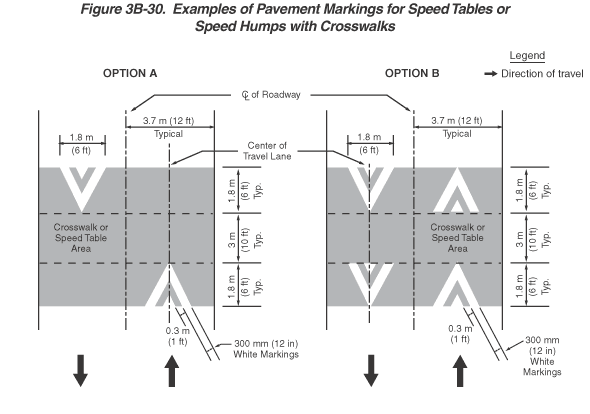
Figure 3B-30. Examples of Pavement Markings for Speed Tables or Speed Humps with Crosswalks
This figure illustrates two examples of pavement markings for speed tables or speed humps with crosswalks.
The markings are shown as white "v" shaped markings inside a second "v" shape. Speed humps are shown with a dimension (noted as typical) of 1.8 m (6 ft) deep on each side of a horizontal area labeled "crosswalk or speed table area" that is shown with a dimension of 3 m (10 ft) deep. The speed hump and crosswalk are shown across all travel lanes. The travel lanes are each shown with a dimension of 3.7 m (12 ft) wide, and this width is denoted as "typical." The "v" shaped markings are shown as centered in each travel lane, with the point of each "v" pointing in the direction of traffic flow in the lane. The overall width of the "v" is shown as a dimension of 1.8 m (6 ft) wide. The thickness of the marking line is shown as a dimension of 300 mm (12 in) wide. The space between the two sets of "v" markings is at a dimensioned distance of 0.3 m (1 ft) wide. A legend shows a black arrow indicating the direction of travel in the lanes.
The figure shows options A and B:
- Option A shows a two-lane roadway segment with black arrows indicating one lane of travel in each direction. One speed hump marking is on the pavement in each direction, with the base of the "v" shown at the outside edge of the speed hump and the point of the "v" at the outside edge of the crosswalk or speed table.
- Option B shows a two-lane roadway segment with black arrows indicating one lane of travel in each direction. Two speed hump markings are on the pavement in each direction. The base of one "v" is shown at the outside edge of the speed hump and the point of the "v" at the outside edge of the crosswalk or speed table, and the base of another "v" is shown at the outside edge of the crosswalk or speed table with the point of the "v" ending at the outside edge of the hump.
